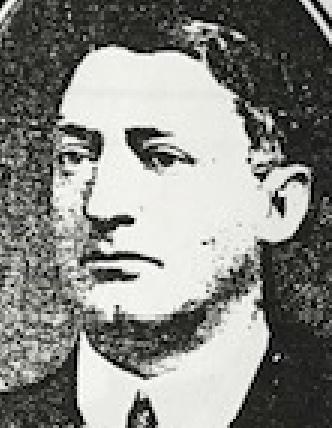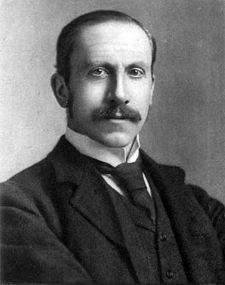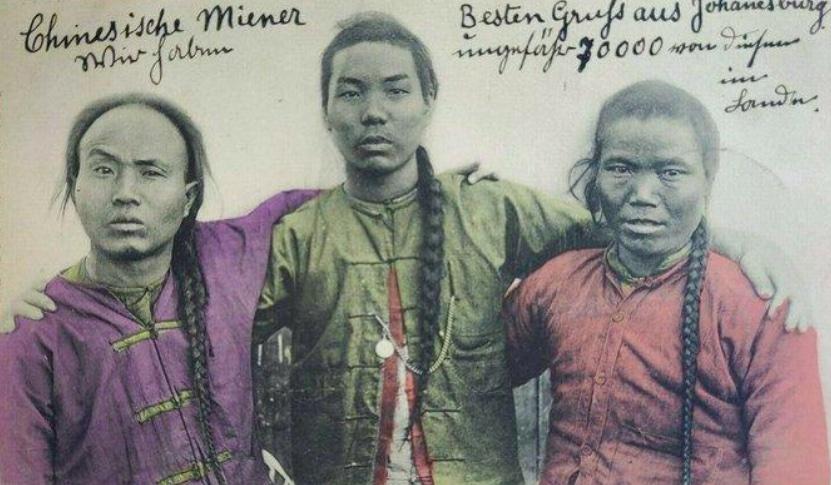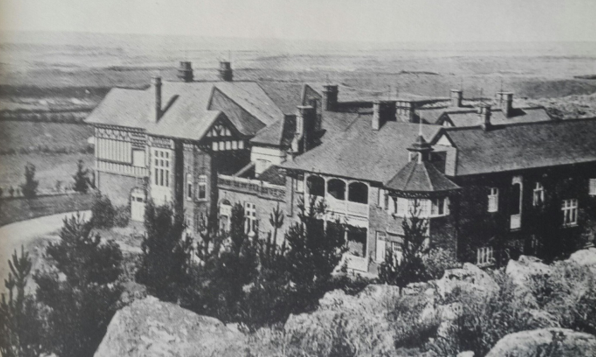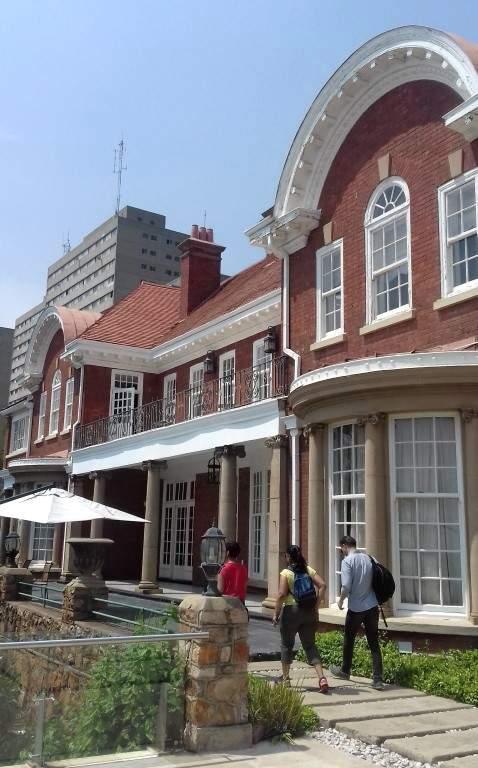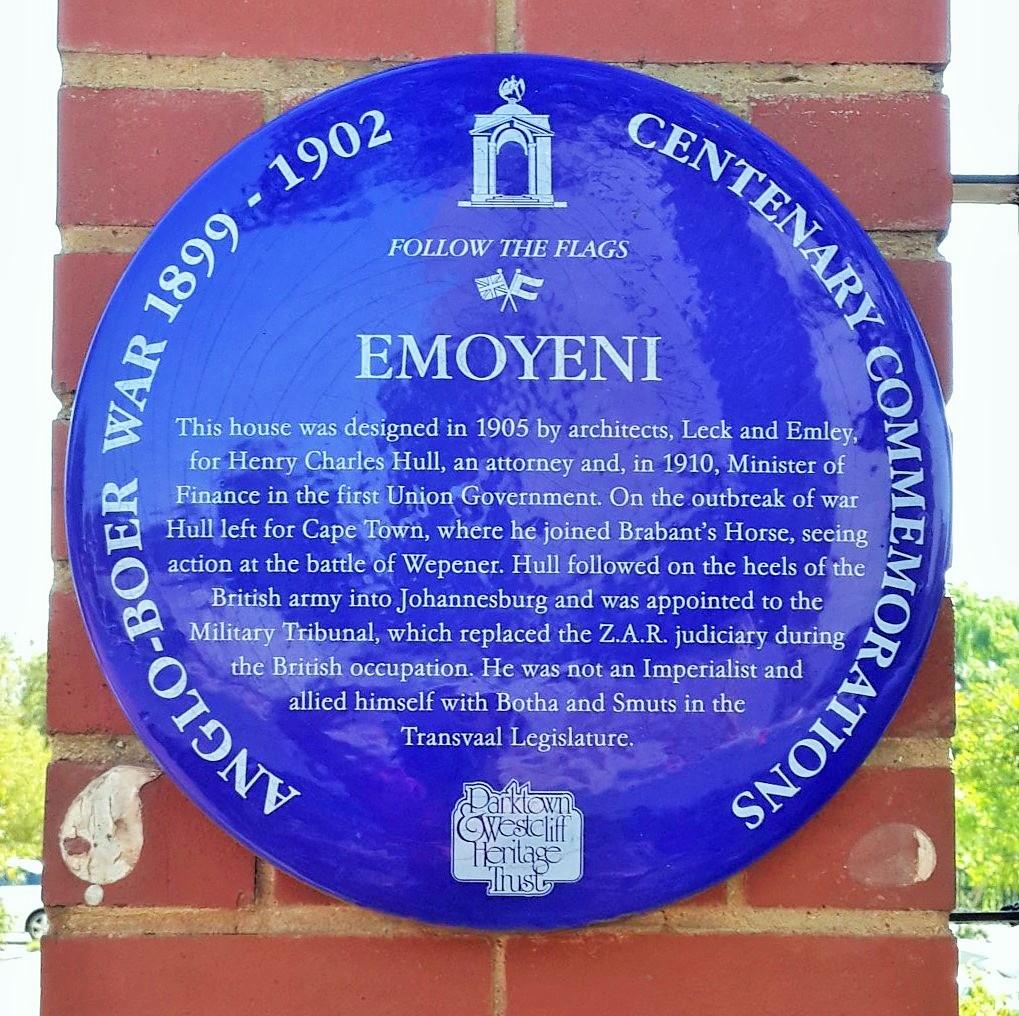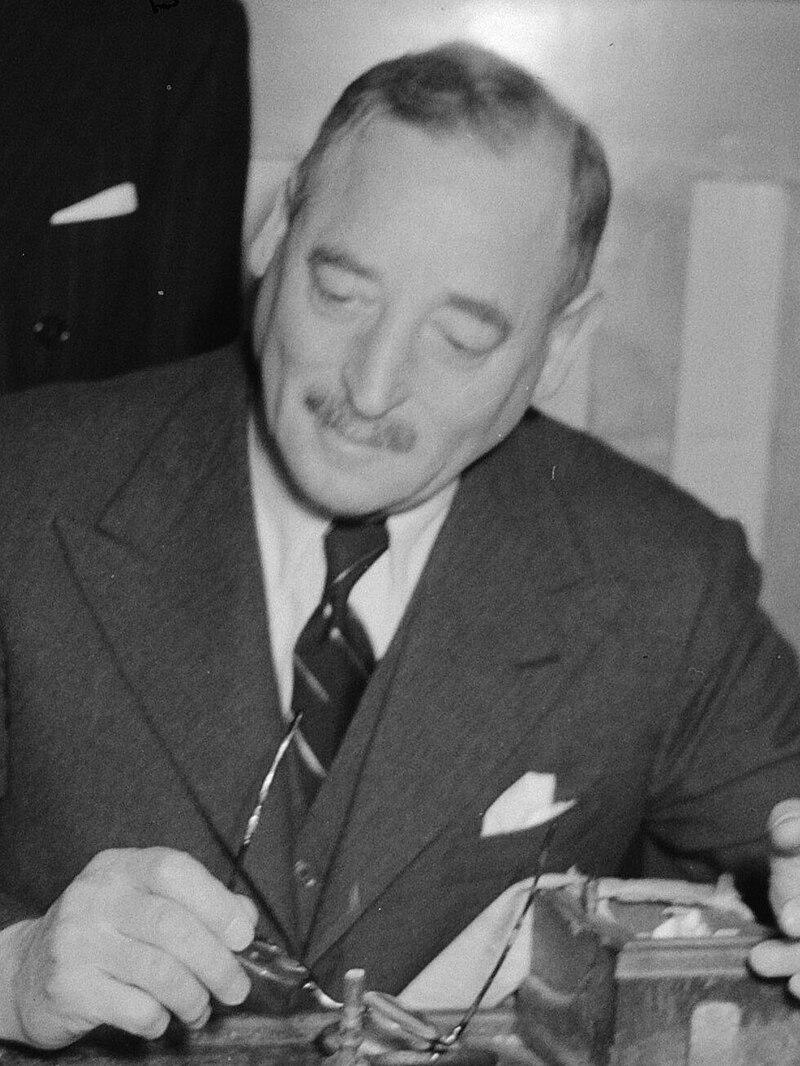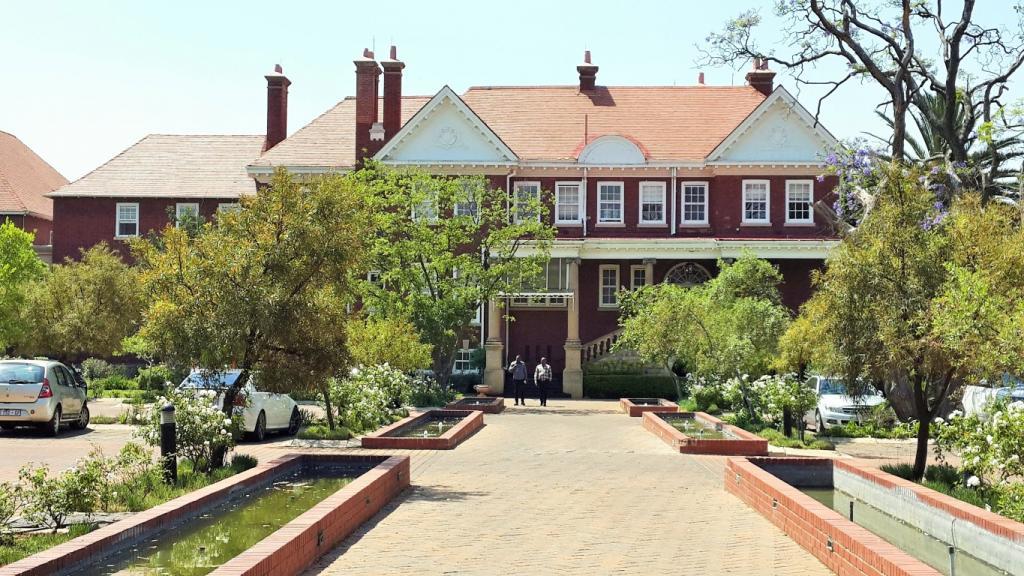
Disclaimer: Any views expressed by individuals and organisations are their own and do not in any way represent the views of The Heritage Portal. If you find any mistakes or historical inaccuracies, please contact the editor.
In the article below, Oscar Norwich, Johannesburg historian and collector, tells the story of Henry Charles Hull, the original owner of the historic stately mansion Emoyeni, situated at the top of Jubilee Road, Parktown. Thank you to the Norwich family for their kind permission to publish this article.
Henry Charles Hull was a distinguished colonial, born at Caledon, Cape Colony, on November 20, 1860. In 1879 he received a Civil Service appointment at Kimberley. He did not, however, stay long in this position but continued to qualify for the Cape Bar and, on being admitted, practised at Kimberley for several years. In 1889 he moved to Johannesburg where he continued to practise law until the troublesome time that preceded the ill-fated Jameson Raid. He threw in his lot with the Reform Committee and the result of his participation was a sentence of two years’ imprisonment and a fine of £1,000 or, in default, an additional 12 months in jail, to be followed by three years’ banishment. He served a short term of imprisonment and then, with his co-members of the Committee, had his sentence remitted except for the fine, on his undertaking not to interfere with the internal politics of the country.
Henry Charles Hull
This pledge he kept although in 1899 he was present at the Bloemfontein Conference, where he rendered valuable service to His Excellency the High Commissioner.
At the conclusion of this Conference he was a leading spirit in the agitation that took place in the Transvaal among British subjects who objected to taxation without representation. He was naturally compelled to leave the Rand at the outbreak of hostilities which heralded the Anglo-Boer War. Most of the leading Reformists had managed to get away before the actual Declaration of War, and Hull narrowly missed capture.
He hid out in the Ferreira Mine for some days and then, disguised as a prospector, slowly made his way to the border, escaping eventually to the Cape. There he was very active in recruiting for several Colonial regiments and served himself with General Brabant’s Column at the Relief of Wepener.
On his return to Johannesburg he resumed practice as a solicitor. He was appointed by Lord Milner as one of the unofficial members of the Legislative Council, during which period he did a large amount of excellent work.
Lord Milner (Wikipedia)
Hull was one of the few men in Parktown to disapprove of Lord Milner’s imperialism. Born in the Cape, he regarded himself as an “Afrikander” and had opposed Kruger because he did not regard himself as an Uitlander. But neither was he willing to dance to the imperialist tune. He was bitterly opposed to the importation of Chinese labour for the mines, siding with Botha and Boer leaders, and becoming most unpopular with his Randlord neighbours.
Old postcard of Chinese Miners in Johannesburg
During 1905 he is recorded as having been married with 5 children and living at 107 Wolmarans Street, Joubert Park. At that period Mr Hull employed the services of the well known pioneer architectural firm of Messrs Leck and Emley to build a palatial residence at No. 15 Jubilee Road. This was sited at the top of the road, at the corner of the then Queens Road, now closed and absorbed by the new College of Education. This site was very close to the historic Phillips home of Hohenheim (now destroyed). It stood then at the front entrance of the Johannesburg Hospital). It was beautifully situated with an uninterrupted northern view towards Pretoria and the Magaliesberg mountain range.
Hohenheim
There is no doubt that the original name of this mansion was “Emoyeni” (Brabys Directory of the Transvaal 1910). This is a Zulu word. Its literal English translation is “Up in the air”. This would be appropriate for this fine residence perched at the top of the imposing Parktown Ridge.
Emoyeni (The Heritage Portal)
When General Botha became Transvaal Premier in 1907, he appointed Hull as Treasurer in his Cabinet. On the formation of the Union of South Africa in 1910, Hull became its first Minister of Finance. Two years later he was to clash with Sauer, Minister of Railways. Hull was furious that Sauer should incur heavy expenditure without first obtaining approval from the Cabinet or the Treasury. While Botha sympathised with Hull he had to let Hull go in order to retain the support of the Cape.
Blue Plaque (The Heritage Portal)
Following Hull’s experience of international finance, it was natural that he should be chosen by Ernest Oppenheimer to accompany him when he went overseas to discuss the formation of a new company, to be formed with a strong injection of capital from the United States. The name of the company created a problem as the American connection had to be acknowledged. Together they came upon the solution ‘Anglo American Corporation of South Africa’. Hull was a founder member of the Board of Directors, March 1917.
Ernest Oppenheimer (Wikipedia)
His greatest service to Anglo American was the purchase of the German-owned diamond mines in South West Africa. Hull and Sir Ernest shrewdly conducted the negotiations greatly to the chagrin of De Beers. De Beers had misjudged the situation, whereas Hull had recognised that after the First World War the German owners would be less confident of their future under a South African government.
Hull was a curious person for his time. He began as a lawyer but finance proved to be his great talent. He was willing to fight for his principles as he proved when he volunteered during the Anglo Boer War again when he opposed Milner fiercely and finally in the confrontation with Sauer.
Henry Charles Hull retired to Muizenberg where he died on October 9, 1932 – just over three score years and ten.
Notes on the changes in the naming of Emoyeni
When Mr Hull left this residence in about 1910, a Mr WA Wyndham became the new owner for approximately 5 years, during which period his home became known as “Wyndhams”. He came to Johannesburg as a member of Lord Milner’s famous Kindergarten, having been appointed an unpaid assistant private secretary to Lord Milner in 1901. Often referred to as Buchan’s half-section, he assisted with the repatriation of Boer prisoners and their settlement on farms belonging to families.
In 1928 the Crown Mines Group acquired this residence and it became the dwelling of its chairman, Dr Samuel Evans. While he lived there it may have been called “Brynywen”. During the Second World War the mansion was converted into a convalescent home for wounded and sick soldiers of the SA Military Forces and known then as “Braemar”. This name probably originated from the well-known Mason-Gordon family who lived there for some years.
Later owners were the Miller family, one of the founders of the OK Bazaar. In 1953, the Paget family bought it and renamed it “Highfield Manor”.
In 1975, the Transvaal Provincial Administration finally acquired it and used it initially as the offices of the Witwatersrand School Board. Soon after the completion of the new Johannesburg Hospital in its immediate vicinity, “Emoyeni” was taken over by the Johannesburg Hospital Board as the headquarters of the Johannesburg Hospital Sports and Recreation Centre. They decided to revert to the original name of Emoyeni, at the suggestion of the author.
About the author: Dr. Oscar Norwich was a medical doctor and passionate collector who focused on African maps and Johannesburg history. As founder of the Johannesburg Historical Foundation, he led city tours and tirelessly sought rare historical items related to Johannesburg. In 1986, he published a large folio-sized book of his Johannesburg postcard collection to commemorate the city's centenary. Norwich also authored several books on African and Southern African maps. His significant map collection was eventually acquired by Stanford University in the USA, though it remains accessible to scholars online.
Comments will load below. If for any reason none appear click here for some troubleshooting tips. If you would like to post a comment and need instructions click here.

